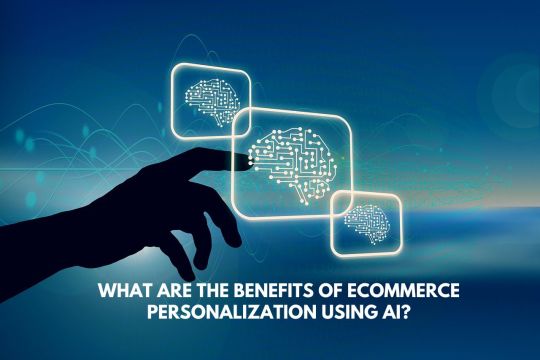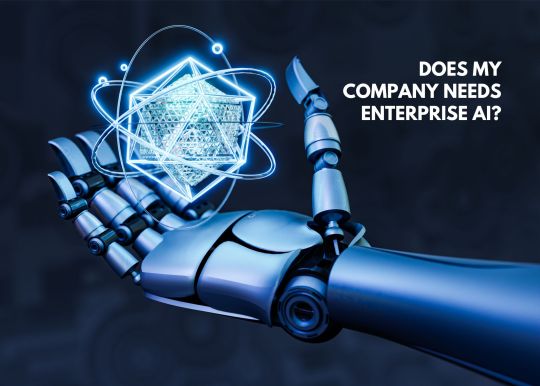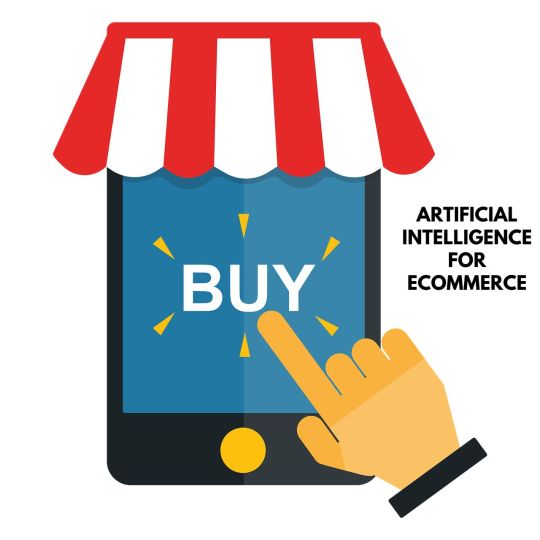Photo

Importance of AI and ML in Fintech
With all the breakthroughs in AI and ML technology, the financial sector has reached a completely new level. These cutting-edge innovations increase accuracy and quicken online transactions while thwarting fraud efforts. The banking industry may benefit from using AI and ML technologies to enhance its services and provide a better client experience.
AI and ML in FinTech can assist a firm in various ways that might be advantageous to them and their users. These advantages include achieving growth goals, establishing a competitive edge, improving relevance with customers, and cutting operating expenses. It can also contribute to the efficiency of internal procedures. Users can gain from this by practising better personal finance management.
Any bank, financial institution, or financial technology business that does not employ AI will soon become obsolete. Since it is one of the industries with the quickest rate of growth, fintech stands to benefit the most from this advanced technology. We may expect that many financial institutions will benefit from predictive AI inputs in the future in order to prevent major financial catastrophes like those we've recently witnessed.
0 notes
Photo

Personalisation AI in eCommerce
Big data, artificial intelligence, and machine learning are examples of modern technology that go beyond mere catchphrases. They allow businesses all over the world to collect enormous volumes of data, discover important insights about trends and client preferences, and create intelligent customer involvement at every stage of the online purchasing lifecycle.
When implemented right, personalisation may increase consumer loyalty, foster brand loyalty, and foster business success. The capacity to deliver a great customer experience, which in turn enhances the possibility of their returning, is the major benefit of personalisation. With personalization, you may deliver pertinent information in an organised, curated way that clients can quickly process. Customers are not overwhelmed when presented to things that pique their interest; rather, they can help with the conversion process. ROI after customising their online stores, it's observed and therefore, highly recommended to use personalisation AI in eCommerce website and create unique shopping journeys for each of your consumers in order to build brand loyalty.
0 notes
Link
0 notes
Photo

What is the difference between Chatbots and Conversational AI?
Conversational AI technology, are advancing the globe with remarkable degrees of automation that maximize services team efficiency and save expenses. The standard chatbots of today are being replaced by smart virtual assistants AI thanks to new developments in AI technology. By simulating conversations with human users, conversational chatbots are an application of artificial intelligence (AI). They follow predetermined rules and employ machine learning and natural language processing (NLP) tools (ML). Together, these developments enable chatbots to analyse data and reply to a wide range of requests and instructions.
Conversational AI chatbots that are data-driven and prescriptive are often referred to as Virtual Assistant bots, AI Virtual Personal Assistants, Virtual Support Agents, AI Voice Assistants, AI Assistants, AI-powered Chatbot Assistants, or Digital Assistants (Digital Worker). They elevate the client experience since they are far more complex, competent, individualised, and advanced than the straightforward task-oriented version.
Using natural language understanding (NLU), natural language processing (NLP), and machine learning (ML), Conversational Virtual Assistant is a contextually aware virtual chatbot that really learns new information as it goes.
2 notes
·
View notes
Photo

Big data, artificial intelligence, and machine learning are examples of modern technology that go beyond mere catchphrases. They allow businesses all over the world to collect enormous volumes of data, discover important insights about trends and client preferences, and create intelligent customer involvement at every stage of the online purchasing lifecycle.
Some of the major benefits of ecommerce personalization using AI includes improved customer experience and assisting selective attention. With personalization, you may also deliver pertinent information in an organised, curated way that clients can quickly process. Customers are not overwhelmed when presented to things that pique their interest; rather, they can help with the conversion process.
For some time now, the rapidly changing world of e-commerce has been entering deep new layers of information thanks to the growing developments in AI and machine learning technologies. Large volumes of data can be processed quickly by computers, who can also run simulations and analyses.
0 notes
Link
0 notes
Photo

The retail sector has been going through a digital transformation for a while now. Every field of the retail company has witnessed a surge in speed, efficiency, and accuracy, largely because of sophisticated data and predictive analytics technologies that support businesses in making data-driven business choices. Artificial intelligence is having a significant impact on the future of online retail as well. Organisations have begun to improve online retail with AI by providing individualised shopping experiences, artificial intelligence in online retail is already dramatically improving the consumer experience.
Chatbots with AI capabilities are a crucial tool for improving customers' online buying experiences. These chatbots are designed to step in for a real salesperson's absence by responding to client inquiries, processing complaints, making product recommendations, etc.
The ideal moment to start lowering or raising prices may be determined by online merchants with the use of AI-enabled predictive analytics. AI can compare requests to compute pricing by keeping an eye on elements like competition prices and inventory levels. Additionally, it is feasible to personalise discounts and offers for clients by tracking their buying habits.
0 notes
Photo

Even though AI is still in its infancy and is still developing, it has the potential to revolutionise the way customer service organisations operate right now for a number of reasons, including its capacity to lower operational costs, personalise the customer experience, deliver actionable analytics, and boost customer agent productivity.
AI in contact centres is used to enhance the client experience and free up human agents from time and effort spent on routine tasks. AI can enable customer service representatives in having more fruitful, interesting, and fulfilling discussions.
Future of AI in BPO industry is immense considering how it can automate routine operations, offer in-depth analysis, and assist agents in achieving better first-call resolution, quicker response times, and happier customer service representatives who have the resources to execute their jobs more effectively.
0 notes
Photo

Due to enhanced software and hardware, the speed of disruptive technologies like AI and ML in Finance has rapidly increased in recent years. Machine learning technologies are increasingly being used in the banking sector to improve results for both customers and organisations.
To mention some prominent examples of AI in financial services includes retail lending operations, retail and commercial credit scoring, fraud detection, customer churn prediction and many others.
The use of AI in financial services has various advantages. By automating processes, it can increase productivity and efficiency, lessen human biases and errors brought on by psychological or emotional factors, and enhance the quality and succinctness of management information by identifying anomalies or longer-term trends that are difficult to detect by conventional reporting techniques.
0 notes
Link
0 notes
Photo

In today's connected digital environment, maximising productivity by reducing uncertainty is the biggest priority across all industries. The growing demand for rapid speed and efficiency among suppliers and business partners of all categories emphasises the need for the industry to utilise artificial intelligence's (AI) potential in supply chains and logistics.
For more accurate capacity planning, more efficiency, higher quality, lower costs, and more output—all while encouraging safer working conditions—AI used in Supply Chain assists in providing the potent optimization abilities that are required.
Due to their ability to handle massive volumes of data, AI-driven systems can prove to be highly successful in inventory management. These intelligent systems are capable of quickly analysing and interpreting large datasets, providing timely recommendations on supply and demand projections. Additionally, AI systems can precisely and quickly answer a range of warehouse issues, as well as simplify challenging workflows and boost efficiency.
0 notes
Link
0 notes
Photo

The timing of an email or phone contact is crucial in debt collection. Depending on the type of person you are working with and how open-minded they may be at that particular time in their calendar, it will change. The optimal moments may finally be forecasted owing to AI and ML, which keeps digital interactions ever-evolving. This gives your business a lot greater chance when attempting to contact someone who owes money.
The best Artificial intelligence collection tools can determine the best time of day to deliver any digital communications and the most efficient manner to get in touch with the debtor. This raises the likelihood of a response and increases collection rates. Machine learning approaches, which concentrate on debts that are more likely to be collected and reveal which times of day or channels are most successful, may provide the most intelligent solutions.
The new approach to debt collection is to flip the script and provide comfort rather than fear. Debtors are offered a second opportunity, making it simpler for them to face their faults head-on while maintaining their dignity.
0 notes
Photo

Artificial intelligence for ecommerce has undeniably benefited several companies to increase customer satisfaction, create more leads, and better understand their clients. Natural language processing (NLP) enables chatbots to understand voice conversations with online shoppers and present them with tailored offers. As a result of their programming, which includes self-learning capabilities that enable them to better meet client wants, they are also always getting better.
AI is also very good at giving clients a customised experience through precise product suggestions and advertising. Massive datasets will be combed through by AI algorithms in order to uncover insights about consumer behaviour that can be used to better anticipate what a customer will need and when they will need it.
AI employs predictive research to generate educated guesses about what the market's future requirements will entail. This AI system gets increasingly better at correctly forecasting what inventory you need to order and how much of it you can always have available through the use of machine learning.
0 notes
Photo

Artificial intelligence (AI) is starting to transform the retail industry. AI-powered solutions assist businesses in streamlining operations, improving customer happiness, increasing sales, and maximising profits. When it comes to automation, AI may be a huge assistance to owners of eCommerce businesses.
An eCommerce company may manage and carry out all repetitive operations with automation, and the workflow on the front and back ends is made simpler. Prior to the use of AI, personalization was a feature of the eCommerce sector. Computers can now process large amounts of data, enabling optimization and real-time analytics. eCommerce shops routinely see a huge number of customers and hundreds of thousands of goods.
The most notable applications of AI in eCommerce include product suggestions, customised shopping experiences, virtual assistants, chatbots, and voice search. The benefits of AI in online retail go way further in gathering insights from consumer data collecting and then dissecting it to customise online retailing services to the likes and tastes of each client.
0 notes